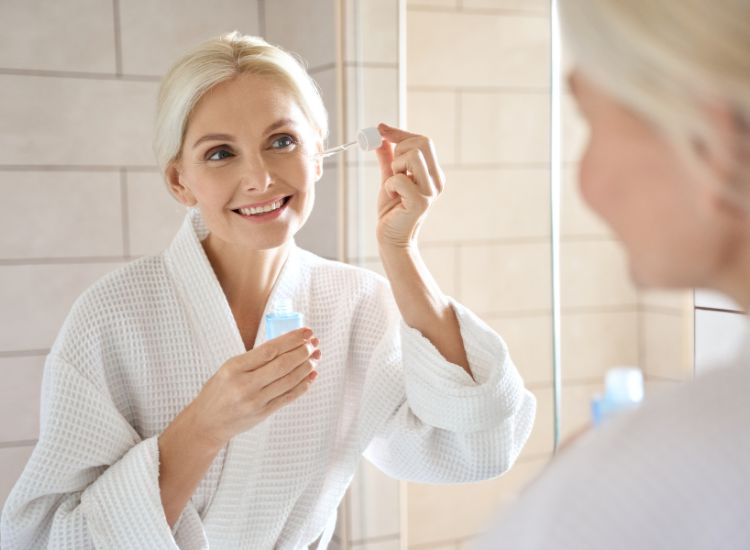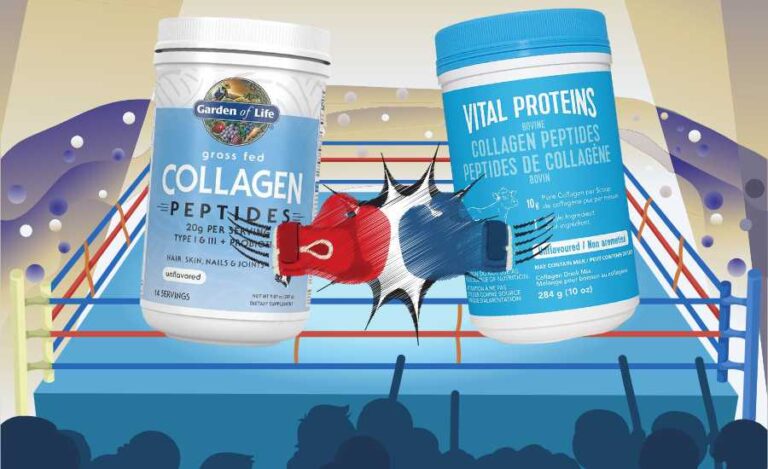Bakuchiol vs Retinol: Choosing the Right Anti-Aging Solution for You.
In the fast-evolving world of skincare, finding the perfect solution to combat signs of aging is a top priority for many. Enter Bakuchiol, a natural alternative derived from the seeds and leaves of the Babchi plant. It’s been gaining attention as a plant-based alternative to the well-known skincare superstar, retinol. But which one is the better choice for your skincare routine, particularly when it comes to addressing fine lines and wrinkles? Let’s delve into the differences and similarities of Bakuchiol vs Retinol to help you make an informed decision.
Understanding the difference: Bakuchiol vs Retinol.
Bakuchiol and retinol both offer potent anti-aging benefits, but their mechanisms of action vary slightly. Retinol, a derivative of Vitamin A, is a gold standard in skincare. It’s renowned for stimulating cell turnover, effectively reducing the appearance of fine lines, wrinkles, and even dark spots over time. However, it can lead to skin irritation in some cases, particularly for those with sensitive skin.
On the other hand, Bakuchiol, often referred to as a natural retinol alternative, provides similar benefits without the potential for skin irritation. This plant extract, derived from the Babchi plant, has been utilized in traditional Indian and Chinese medicine for its remarkable anti-aging properties. It aids in preventing fine lines, enhancing skin elasticity, and reducing hyperpigmentation.

Comparing the Benefits: Bakuchiol vs Retinol.
In the showdown between Bakuchiol vs Retinol, both enhance skin texture and diminish the visibility of fine lines and wrinkles. Bakuchiol, being a natural ingredient, is generally considered kinder to the skin and has less risk of causing irritation. It’s a great option for those with sensitive skin types. Retinol, though more potent, can be a bit harsh for some individuals and may require a period of adjustment.
The Role of Collagen Production.
Collagen, a crucial protein responsible for skin elasticity, tends to decrease with age, resulting in wrinkles. Both Bakuchiol and retinol play a significant role in boosting collagen production. Bakuchiol aids in maintaining firm and supple skin, offering similar benefits to retinol at a slightly lower scale without the risk of adverse effects. Retinol, with its proven track record, also excels in stimulating collagen production, contributing to smoother, firmer skin.
Addressing Dark Spots and Hyperpigmentation.
Whether it’s age spots or hyperpigmentation concerns, both Bakuchiol and retinol can be valuable assets in your skincare arsenal. They work by promoting cell turnover, gradually fading these imperfections over time. However, Bakuchiol may take a bit longer to produce visible results compared to its synthetic counterpart, Retinol.
In addition to Bakuchiol and retinol, Vitamin C serums or creams play a significant role in addressing dark spots and hyperpigmentation. These products are renowned for their potent antioxidant properties and their ability to inhibit melanin production, which contributes to dark spots. Vitamin C also supports collagen production, aiding in overall skin tone and texture improvement. If you’re interested in delving further into the benefits of Vitamin C in reducing dark spots, I have another article that provides an in-depth exploration of this topic. You can find it right here.
Handling Sensitive Skin.
For those with sensitive skin types, Bakuchiol emerges as a great option. Its natural, plant-based origin lends itself to a gentler approach. It’s well-tolerated and less likely to cause skin irritation. On the contrary, retinol may require a more cautious introduction to avoid potential adverse reactions.
What are the downsides of bakuchiol?
While Bakuchiol is generally well-tolerated and considered a gentle alternative to retinol, there are still a few potential downsides to be aware of:
Slower Results: Some studies suggest that Bakuchiol may take a bit longer to produce visible results compared to synthetic retinol. While it is effective, individuals looking for rapid improvements might need to exercise patience.
Less Potent: Bakuchiol is generally considered to be milder than retinol. This can be an advantage for those with sensitive skin, but individuals seeking more dramatic results might find retinol to be a stronger option.
Limited Clinical Research: While early studies on Bakuchiol are promising, it has not been studied as extensively as retinol. More research is needed to fully understand its long-term effects and potential interactions with other skincare ingredients.
Possible Allergic Reactions: Although rare, some individuals may still experience mild skin redness or irritation with Bakuchiol. It’s advisable to perform a patch test before applying it all over the face.
Bakuchiol Products: Incorporating Them into Your Routine.
As the skincare world embraces the benefits of Bakuchiol, finding the right products for your routine is essential. Bakuchiol serums, creams, and facial oils have become popular choices. These products often combine Bakuchiol with other powerhouse ingredients like hyaluronic acid and vitamin C for an even more comprehensive approach to anti-aging.
Retinol Products: A Tried-and-True Solution.
For those who lean towards the tried-and-true, prescription retinoids and over-the-counter retinol serums remain the go-to options. These products often come in various concentrations, allowing you to find the right strength for your skin’s tolerance. You can find out more about one of the best affordable and popular brands of effective retinol serums here. This is the one I used for a long time and recommend. There are various strengths so you can choose one that is most suitable for your skin type if you decide to go down the retinol road.
Is it ok to use Bakuchiol and Retinol together?
For those seeking to harness the benefits of both Bakuchiol and retinol, a balanced approach may be the key. Using Bakuchiol in the morning and retinol in the evening can provide a comprehensive anti-aging strategy without overwhelming the skin.
What do studies say about Bakuchiol's and Retinol's effectiveness?

An assistant professor of dermatology advises considering your unique skin type and concerns when selecting between Bakuchiol vs Retinol. While Bakuchiol offers a gentler alternative for sensitive skin types, retinol remains a potent option for those seeking more dramatic results.
In a clinical study, researchers aimed to compare the effectiveness and side effects of bakuchiol and retinol in addressing common signs of facial aging. The 12-week double-blind study involved 44 participants who applied either bakuchiol 0.5% cream twice daily or retinol 0.5% cream daily. High-resolution photographs were taken at various intervals for analysis.
Both bakuchiol and retinol were found to significantly reduce wrinkle surface area and hyperpigmentation, with no notable difference between the two compounds. However, users of retinol reported more instances of facial skin scaling and stinging.
The study concludes that bakuchiol shows comparable efficacy to retinol in improving photoaging and is better tolerated, presenting itself as a promising alternative for those seeking a gentler option than retinol. You can find the study reference on the National Library of Medicine website here.
Conclusion: Making the Right Choice.
When it comes down to it, choosing Bakuchiol vs Retinol is a personal one. If you’re drawn to natural products and have sensitive skin, Bakuchiol could be your ideal match. Its plant-based origin and impressive anti-aging properties make it a standout choice.
For those seeking a well-established, potent solution with a long history of clinical research, retinol remains a trusted option. Consulting a dermatologist can provide valuable insights tailored to your specific skin type and concerns.
Remember, building a skincare routine that works for you is a journey. By incorporating the right products and being consistent, you can achieve healthier, more youthful-looking skin. Whether you opt for Bakuchiol, retinol, or a combination of both, taking steps towards a well-crafted skincare routine is a great reason to feel confident in your skin’s journey towards a more radiant future.
Best Bakuchiol and Retinol brands I recommend tried and tested for several years.






